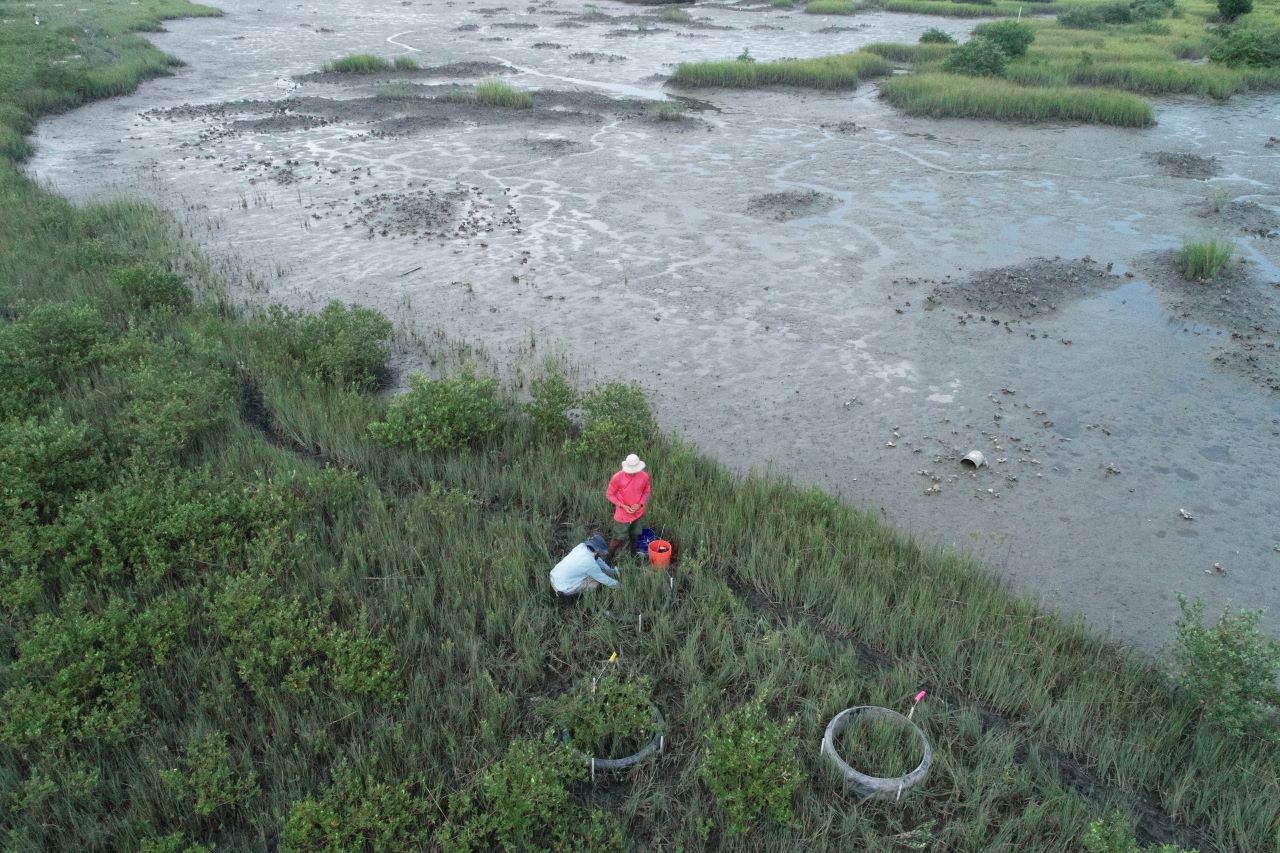Andrew Altieri
Assistant Professor
- Gainesville FL UNITED STATES
- Herbert Wertheim College of Engineering
Andrew Altieri studies ecology of human-dominated ecosystems to support coastal restoration.
Contact More Open optionsBiography
Andrew Altieri is an assistant professor who conducts teaching and research in the areas of applied ecology. His work examines how global drivers, including habitat degradation, species invasions, extinctions and overexploitation, have cascading effects on the biodiversity and emergent properties of coastal ecosystems. He employs an interdisciplinary combination of field experiments, large-scale observations, historical reconstruction and ecophysiology techniques that integrates from the organism to seascape. By testing hypotheses about thresholds, limiting factors and synergistic interactions, his work supports conservation and sustainable solutions towards coastal resilience.
Areas of Expertise
Media Appearances
Could low oxygen levels be just as threatening to Florida's coral reefs as overheated seas?
Central Florida Public Media radio
2023-08-14
Florida's coral reefs have been decimated by record high temperatures, spurring researchers to relocate some species to onshore tanks. But lowered levels of oxygen may be as much of a threat to their existence. WUSF's Steve Newborn talks about this peril with Andrew Altieri. He's an assistant professor in environmental engineering sciences at the University of Florida, and associate director at the university's Center for Coastal Solutions.
Articles
Positive interspecific interactions on coral reefs in a changing climate: a review
Coral ReefsLewis and Altieri
2025-02-12
Positive interactions are important drivers of community structure and ecosystem function worldwide. This is perhaps best exemplified on coral reefs, where facilitative interactions are thought to contribute to the reefs' high biodiversity. Here we review and evaluate global research on positive interactions within the warm water coral reefs with specific focus on climate change.
Living in a material world: Support for the use of natural and alternative materials in coastal restoration and living shorelines
Ecological EngineeringSakr and Altieri
2025-01-01
The size and expense of coastal restoration efforts are increasing exponentially to mitigate anthropogenic environmental impacts and achieve international conservation goals. As part of these efforts, a variety of conventional materials including plastic, metal, and concrete are used in breakwater, settling substrate, vegetation stabilization, and sediment retention structures because of their availability, inexpensive purchase price, and predictable properties.
Reviews and syntheses: Biological indicators of low-oxygen stress in marine water-breathing animals
BiogeosciencesRoman, et al.
2024-11-14
Anthropogenic warming and nutrient over-enrichment of our oceans have resulted in significant, and often catastrophic, reductions in dissolved oxygen (deoxygenation). Stress on water-breathing animals from this deoxygenation has been shown to occur at all levels of biological organization: cellular, organ, individual, species, population, community, and ecosystem. Most climate forecasts predict increases in ocean deoxygenation; thus, it is essential to develop reliable biological indicators of low-oxygen stress that can be used by regional and global oxygen monitoring efforts to detect and assess the impacts of deoxygenation on ocean life.


